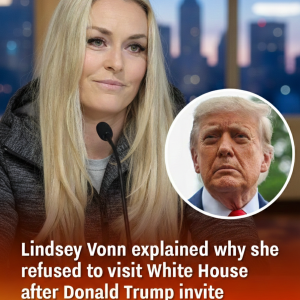Donald and Melania Trump rarely display affection in public, making their recent on-stage kiss and hand-holding moment particularly striking. The White House bolstered the moment by sharing photos of the couple on its official X account, seemingly emphasizing a narrative of closeness. Instead of quieting speculation about their marriage, the posts triggered widespread online backlash. Commenters accused the administration of attempting a poorly timed and transparent public relations maneuver aimed at reshaping public perception of the couple’s strained relationship.
Rumors regarding tension in the Trump marriage have circulated for years, often fueled by journalists, insiders, and public behaviors. Trump biographer and critic Michael Wolff has claimed Melania “hates” her husband, and such statements have shaped public assumptions. A New York Times report published in May 2025 intensified scrutiny by noting Melania had spent only 14 days at the White House since January, suggesting an unusually distant dynamic between the First Lady and presidential duties. These ongoing reports created an environment where any shift in their behavior—especially an affectionate one—became instantly analyzed under a microscope.
In this context, the sudden increase in public affection seemed all the more dramatic. During the signing of the “Fostering the Future for American Children and Families” executive order on November 13, Melania delivered a speech, received a warm ovation, and was then kissed by Donald Trump. He publicly praised her as a “magnificent and very caring First Lady,” remarks that stood out against their typically formal interactions. The White House followed up by posting a photo of the kiss captioned, “I can’t help falling in love with you,” and later a second image of the couple holding hands with the caption, “America’s power couple.”
These posts, however, were shared during a politically sensitive moment for Trump. His past association with Jeffrey Epstein reentered headlines when Epstein’s estate released more than 20,000 pages of documents. One email from Epstein referenced Trump directly, hinting at potentially damaging implications. While Trump dismissed the documents as a “manufactured hoax,” he simultaneously encouraged Republicans in the House to vote for their release, suggesting a complex strategy to address the controversy head-on. The timing of the affectionate White House posts therefore appeared, to many observers, suspiciously convenient.
Social media reaction was swift and overwhelmingly critical. Users felt the imagery was an obvious attempt to counteract the negative headlines surrounding Trump’s renewed Epstein connection. Comments flooded the posts, mocking the perceived spin and questioning the authenticity of the couple’s displays of affection. One user called the images the “worst attempt at damage control in human history,” while others commented that seeing them so close for the first time made the situation seem “way worse.” Additional remarks suggested the posts only deepened suspicion, with jokes about the White House needing a “better intern” and comparisons likening the rare affectionate moment to a historic anomaly.
The public response highlights how deeply audiences interpret political imagery, especially when it involves the personal lives of high-profile figures like the Trumps. In this case, the contrast between long-standing reports of strain and the sudden push for affectionate public messaging created a sense of artificiality. Rather than reassuring the public about the state of the Trump marriage, the posts appeared to many as an orchestrated attempt to redirect attention from more damaging controversies.
Ultimately, the incident underscores how intertwined politics, public image, and personal relationships have become in modern media. Any shift in tone—from distant professionalism to warmth—can trigger widespread analysis and skepticism. For Donald and Melania Trump, whose interactions have long been watched for signs of tension, the sudden display of affection only deepened debate. Whether the photos were intended to convey genuine closeness or political stabilization, the online reaction made one thing clear: the public was not convinced.





